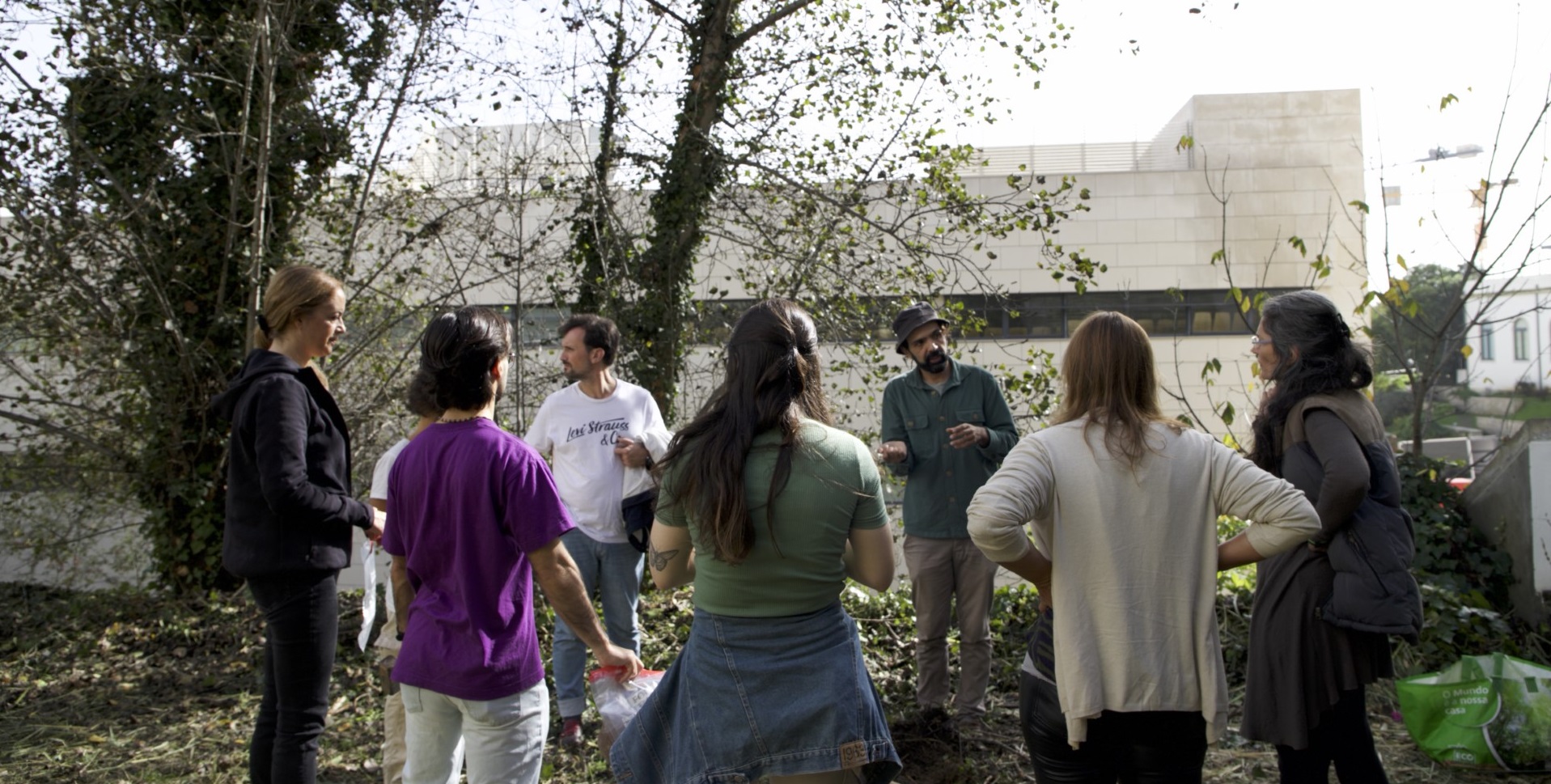Let's clear the ground for planting!
We now know the Miyawaki method of urban mini-forests.
We took soil samples for analysis.
We weeded out invasive exotic plants.
We pruned the species that will remain in the space.
We collected all the rubbish.
We mapped out the space.
We created the design of the mini-forest.
Now it's time to clear the land to mark out the design and carry out the planting!
On 14th December, Thursday, at 13.00, we'll meet on campus next to the Library to weed out any remaining invasive species and prepare the space for marking out the paths and clearings. These steps are very important and are carried out before the planting. Join us. We're going to need as many hands as possible!
The mini-forest and its creation process are part of the TERRARE - Action research for social and ecological regenerationproject, which is being developed by the SOCIUS/CSG researcher Oriana Rainho Brás, supported by 'ISEG Sustainability' with the collaboration of biologist António Alexandre from 2Adapt-Serviços de Adaptação Climática and FCUL, and in partnership with ValorSul-Valorização e Tratamento de Resíduos Sólidos das Regiões de Lisboa e do Oeste, SA, which is supplying the organic compost to enrich the soil.
The object of the TERRARE project is to reflect on the eco-social processes involved in creating an urban mini-forest with the participation of the university community and to understand the dynamics of research into soil regeneration through reforestation and community involvement. ISEG's mini-forest follows the Miyawaki method, which is characterised by the dense planting of native species belonging to all the strata of a forest, which subsequently enables them to grow rapidly in spaces as small as 300m2. The mini-forest model provides multiple benefits, such as: the diversification of the local fauna and flora, carbon absorption, water fixation, thermal regulation and soil regeneration, as well as improving the well-being of humans and more-than-humans and representing an enormous potential for nature-related learning.
To take part, all you need to do is register here or contact researcher Oriana Rainho Brás at orianarb@socius.iseg.ulisboa.pt.
We look forward to seeing you!









